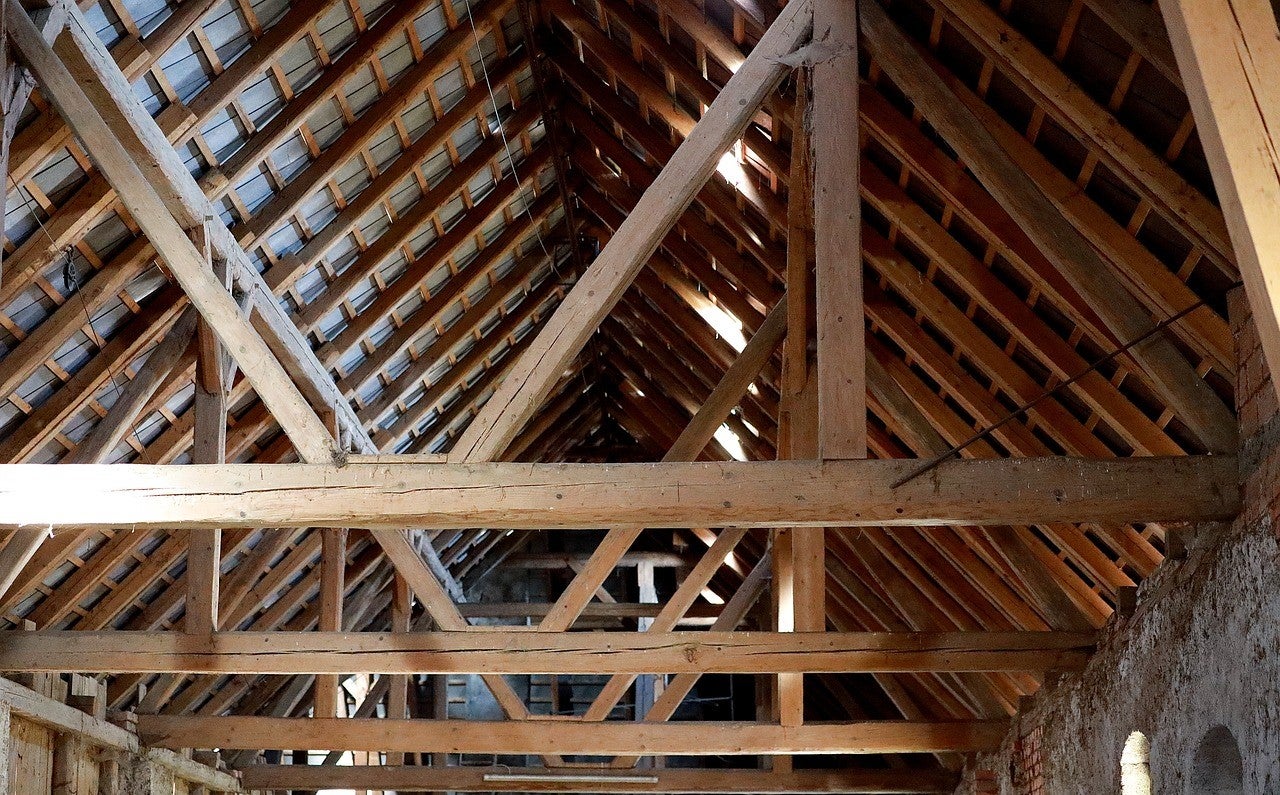What to Look for During a Home Inspection
This guide will walk you through the key elements to focus on, helping you identify potential issues that could affect your investment and lifestyle.
Key Takeaways:
- Structural Integrity: Assess the foundation, walls, and roof for any signs of damage or deterioration. Look for cracks, uneven flooring, or sagging areas that could indicate deeper issues.
- Electrical Systems: Evaluate the electrical panel, wiring, outlets, and fixtures for safety and functionality. Ensure that the home meets current electrical codes and has no exposed wires or outdated components.
- Plumbing Condition: Inspect pipes, fixtures, and drainage systems to check for leaks, corrosion, or clogs. A thorough assessment will help gauge the overall health of the plumbing system and identify potential risks.
Understanding the Home Inspection Process
Before you launch on buying a home, it’s crucial to familiarize yourself with the home inspection process. A thorough inspection can unveil any hidden issues within the property, helping you make an informed decision.Typically conducted by a licensed home inspector, this process aims to evaluate the condition of the home, covering aspects such as structural integrity, electrical systems, plumbing, and more. Understanding how this process works will empower you to address any concerns that may arise, ensuring that your potential investment is sound.
What is a Home Inspection?
Along with the excitement of purchasing a home comes the necessity of a home inspection. This comprehensive assessment helps identify any existing or potential problems within the property. A certified inspector examines various components of the house, providing you with a detailed report on its condition and any needed repairs. This critical step in the home-buying process allows you to approach your investment with clarity and confidence.Purpose and Importance of Home Inspections
Besides giving you peace of mind, home inspections serve a vital purpose in your home-buying journey. They provide an opportunity to uncover significant issues that could lead to expensive repairs down the line. Armed with precise information, you can negotiate repairs with the seller or even reconsider your purchase if the problems are extensive. Ultimately, a home inspection is designed to protect your interests and help you make the best choice for your future.This proactive approach significantly reduces the risk of unexpected expenses and ensures you're making a sound investment. A thorough home inspection can highlight minor problems that could escalate if left unaddressed, allowing you to prioritize repairs before they worsen. Furthermore, understanding the condition of the home gives you leverage in negotiations, as you can address concerns with the seller directly. Investing in a home inspection not only safeguards your financial future but also fosters confidence as you navigate the home-buying process.
Key Areas to Inspect
If you are getting ready for a home inspection, there are several key areas that you should focus on to ensure you are making a sound investment. These areas include structural components, electrical systems, plumbing systems, and roof and exterior features. Each of these facets plays a significant role in the overall quality and safety of the property, and being aware of what to look for can help you identify any potential issues before they become costly problems.Structural Components
Behind the walls, the foundation, framing, and other structural components of a home are crucial for its stability and integrity. You’ll want to check for signs of damage, such as cracks in the walls or uneven flooring, which can indicate deeper issues. Make sure everything appears straight and solid, as major repairs can become overwhelming life burdens.Electrical Systems
The electrical system is integral to your home’s functionality and safety. You should check for adequate service capacity, proper grounding, and the condition of the wiring. Look for any outdated components that may no longer meet safety standards or risks of electrical hazards.As you assess the electrical systems, also consider checking the outlets and switches for signs of wear or loose connections. It’s wise to pay attention to potential fire hazards, such as exposed wiring, and ensure that smoke detectors are present and functioning correctly. A thorough evaluation of these elements can save you from future headaches and expenses.
Plumbing Systems
By inspecting the plumbing systems in your potential home, you can identify any leaks or water damage that could lead to significant issues down the line. Check all visible pipes for signs of rust or corrosion, and make sure faucets and toilets are functioning properly without any signs of leaks.Another key aspect to explore is the water pressure and drainage in both sinks and appliances. Lack of adequate pressure or slow drainage can indicate underlying problems within the plumbing system. It’s crucial to ensure that the plumbing is up to code to avoid costly repairs and disruptions to your water supply in the future.
Roof and Exterior
One of the most significant aspects of a home inspection is evaluating the roof and exterior features, as they protect the property from the elements. You should look for missing or damaged shingles, signs of leaks, and the overall condition of gutters and downspouts.With a strong roof and proper exterior maintenance, you can avoid substantial repair costs in the long run. Ensure that the siding is intact and check for any signs of decay or water damage, as these can lead to more severe issues inside your home. A thorough assessment of the exterior can reveal vital information about the home's upkeep and potential expenses ahead.
Common Issues to Look For
Many home inspections uncover common issues that can impact your decision to purchase a property. These problems can range from minor repairs to significant structural concerns. Be vigilant during your inspection, as addressing these items before finalizing a sale can save you both time and money in the long run.Signs of Water Damage
Between stains on ceilings, walls, and floors, and the presence of mould or mildew, any indication of water damage should raise immediate concern. Look for peeling paint, warped flooring, or musty odours, as these could signify underlying plumbing issues or leaks that need attention.Pest Infestations
After assessing the property’s structure, it’s important to check for signs of pest infestations. Look for droppings, chewed wires, or unusual trails that pests may leave behind in hidden areas.Hence, addressing pest infestations promptly can prevent extensive damage to your home. An infestation can lead to costly repairs and compromise the safety of your living environment. Engage a professional pest inspector to assess any concerns; their expertise can provide you with a clear understanding of the situation and necessary remedies.
Safety Hazards
One key aspect of a home inspection is identifying potential safety hazards that may pose risks to you and your family. Be on the lookout for outdated electrical systems, unsecured railings, or hazardous materials like asbestos. Understanding the implications of safety hazards is crucial for making an informed decision.These issues, if not addressed, can create dangerous living conditions. Prioritize your safety by seeking expert evaluations and solutions for any identified risks to ensure your new home is secure and comfortable.
Questions to Ask Your Home Inspector
Once again, it's vital to engage in a thorough conversation with your home inspector. Ask about their experience, the specific areas they will cover during the inspection, and any red flags they anticipate. Inquire how long the inspection will take and when you can expect the final report. Understanding their procedures and approaches can provide you with confidence about your investment and peace of mind regarding potential issues.Experience and Credentials
Around home inspections, the qualifications of your inspector matter significantly. Check if they are licensed and insured, and ask about their professional affiliations, such as membership in national or state associations. An experienced inspector will have a proven track record and relevant training, which can help ensure that your inspection is thorough and knowledgeable.Inspection Procedures
After establishing the inspector's credentials, turn your focus to their specific inspection procedures. Understanding how they plan to evaluate the property will give you insight into what to expect during the inspection.Procedures often include an evaluation of the structure, roof, plumbing, electrical systems, and HVAC systems, among other areas. An inspector typically uses specialized tools to assess conditions and potential hazards effectively. They might also check for pest infestations, insulation quality, and moisture levels, ensuring that every aspect is thoroughly reviewed. By knowing their procedures, you can gauge the level of detail and care they will put into your home inspection.
Reviewing the Inspection Report
Now that your home inspection is complete, it's crucial to thoroughly examine the inspection report. This document provides a detailed overview of the property’s condition and highlights any issues that may require your attention. Pay close attention to the inspector's summary, as well as comments and recommendations, to understand your next steps and make informed decisions regarding your potential new home.Understanding the Findings
With the inspection report in hand, take time to break down the findings into categories. Differentiate between minor concerns, which can be addressed later, and significant issues that need immediate attention. This will help you understand the overall condition of your home and prioritize your actions post-inspection.Prioritizing Repairs and Maintenance
Maintenance is key to ensuring the longevity of your home. After reviewing the report, you'll need to prioritize repairs based on safety, functionality, and cost. Major systems like plumbing, electrical, and HVAC should be at the top of your list, as issues in these areas can lead to larger problems down the road. Considering the implications of the findings, create a list that prioritizes the repairs into urgent, important, and minor categories.This approach helps manage your budget effectively and addresses any immediate safety hazards first. Keep in mind that some issues may require professional help, while others can be tackled through DIY methods. Regular maintenance will save you time and money in the long run, ensuring your home remains a safe and comfortable space for you and your family.
To wrap up
Taking this into account, during your home inspection, you should focus on key aspects like the roof, plumbing, electrical systems, and foundation. Ensure you check for signs of water damage, pest infestations, and the overall condition of windows and doors. It's beneficial to ask the inspector questions about any issues found and their implications for your future home.By being thorough and educated during this process, you can make an informed decision and safeguard your investment in the long run.
Contact me personally to learn more.
About the author:
Fanis Makrigiannis is a trusted Realtor with RE/MAX Rouge River Realty Ltd., specializing in buying, selling, and leasing homes, condos, and investment properties. Known for his professionalism, market expertise, and personal approach, Fanis is committed to making every real estate journey seamless and rewarding.
He understands that each transaction represents a significant milestone and works tirelessly to deliver outstanding results. With strong negotiation skills and a deep understanding of market trends, Fanis builds lasting client relationships rooted in trust and satisfaction.
Fanis Makrigiannis
Realtor®
RE/MAX Rouge River Realty LTD
(c): 905.449.4166
(e): info@fanis.ca
Related Articles:
The bio page provides a detailed look into Fanis Makrigiannis’ professional journey, qualifications, and expertise. It covers his experience in the real estate industry, highlighting his dedication to helping clients navigate the property market. This page blends professionalism with a personal touch, helping visitors connect with Fanis on a deeper level.





